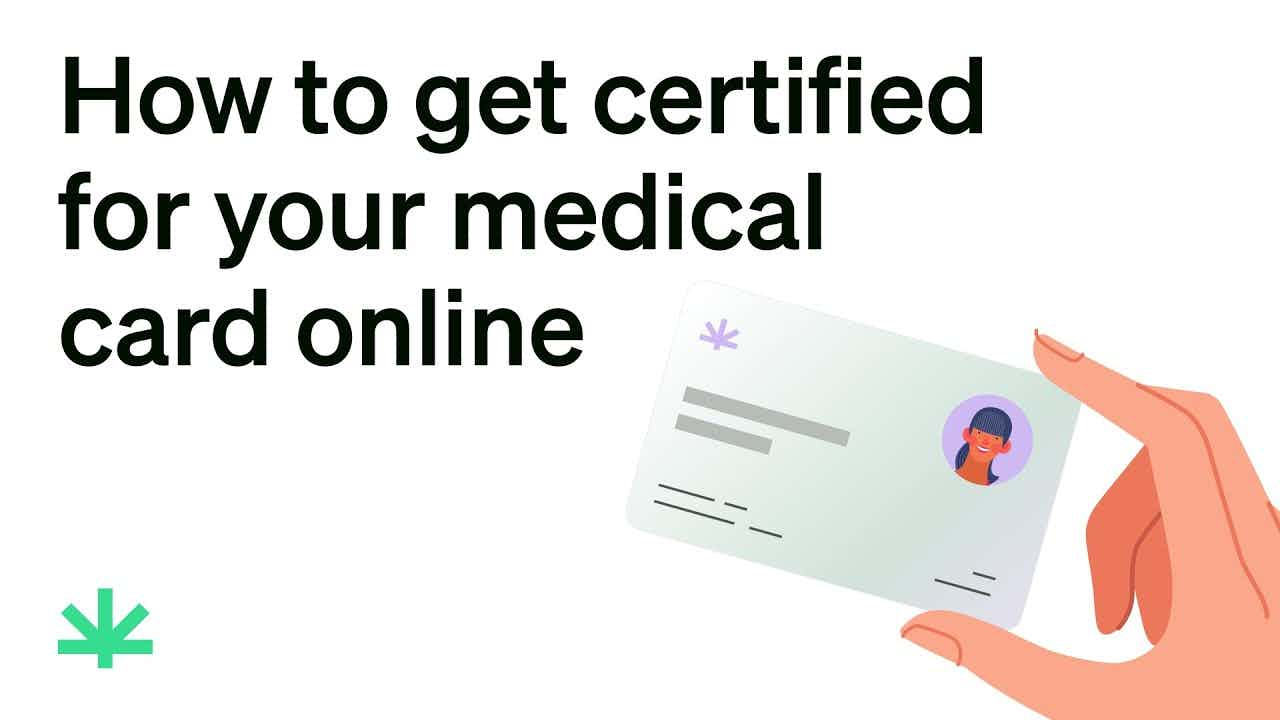Leafwell is opening soon for telehealth consultations in Guam. Fill out the form to be notified as soon as our services are available.
Get a Guam Medical Marijuana Card
The key benefits of a medical marijuana card
Save up to 15% on products
Higher possession
Trusted by 1 Million Monthly Users
4 easy steps to get your GU medical card
Get approved in minutes using Leafwell’s online platform.
1. Join waitlist
Join our waitlist to be notified when we’re up and running in Guam.
2. Sign up
Once we’re open, you can complete your medical marijuana evaluation with a licensed healthcare provider.
3. Get your certification
Once approved, you’ll be certified by the doctor and receive your certificate.
4. Start shopping
Patients do not have to apply for a medical marijuana card in Guam. Shop with your certificate
A few more questions about the process?
Watch this video to learn more about getting a medical marijuana card in Guam.

How to qualify for a mmj card in Guam
You must be 18 or over to apply for a medical marijuana card for yourself in Guam. Those under 18 with a qualifying condition may get a medical marijuana recommendation if they apply with a caregiver.
Any patient with a condition “for which the qualified patient’s practitioner has determined that the use of medical cannabis may provide relief” may also qualify for medical cannabis in Guam.
Qualifying conditions include:
- Cancer
- Damage to the nervous tissue of the spinal cord, with an objective neurological indication of intractable spasticity
- Epilepsy
- Glaucoma
- HIV/AIDS
- Hospice care
- Multiple sclerosis
- Post-traumatic stress disorder (PTSD)
- Rheumatoid arthritis or similar chronic autoimmune inflammatory disorders
- Any other medical condition, treatment, or disease as approved by the Department of Public Health and Social Services.
Convenient, Quality Care
When You Need It Most
With Leafwell, you'll be matched up with a highly knowledgeable, empathetic, licensed medical marijuana doctor or provider.

2 documents needed to apply for a medical card
To apply for a medical marijuana card in Guam, you must follow a few essential steps to ensure your eligibility and successful registration.
- Proof of ID and Residency
Providing proof of identification and residency to apply for a medical marijuana card in Guam. - Medical Marijuana Recommendation
Consult with a registered MMJ physician who can evaluate your condition and provide a recommendation. It is essential to choose a physician who is experienced in treating patients with your specific condition, as they will be able to provide the necessary certification that forms a critical part of your application.
Legal limitations for Guam medical cardholders
Guam is fully legal: Both medical and recreational cannabis use are legal in Guam.
Possession limits for patients: Medical marijuana patients may possess up to 2.5 ounces of cannabis. A person aged 21 or over may possess up to one ounce of cannabis and either eight grams of cannabis concentrate or cannabis-infused products containing up to 800 mg of THC.
Cultivation is allowed: Both medical marijuana patients and adult consumers can grow up to six mature cannabis plants and up to 12 immature plants on their property. An adult may possess the cannabis produced by the cannabis plants grown on their property. The right to grow may only exist until dispensaries are running.
CBD and hemp-derived cannabinoid products are legal: Other products containing hemp-derived cannabinoids, such as CBD and delta-8, are also legal, and there are no additional restrictions other than those imposed by the 2018 Farm Bill.
How to become a caregiver in Guam
Medical marijuana patients in Guam can designate a caregiver. Patients are not required to have a medical marijuana registry card, but caregivers are.
Qualified patients or caregivers can pay $15 to obtain a cultivation permit to grow no more than six flowering and 12 immature plants at a time. Caregivers must be at least 21 years old and can assist up to five patients.
Can I use my Guam medical cannabis card in other U.S. states and territories?
Guam’s medical marijuana laws apply only to the territory’s residents, and Guam does not recognize other states’ or territories’ medical marijuana cards.
However, adult use of cannabis is legal in Guam, so a medical card is not necessary for those over 21 to legally consume cannabis.
The following states and U.S. territories accept or recognize out-of-state medical marijuana cards:
- Arizona
- Arkansas *
- Hawaii *
- Louisiana
- Maine
- Michigan (at the dispensary’s discretion)
- Nevada
- New Hampshire
- New Jersey *
- New Mexico
- Oklahoma *
- Puerto Rico
- U.S. Virgin Islands *
- Utah * (up to two 21-day periods in a calendar year)
- Washington, D.C.
*Visitors must complete a visiting patient application with the state program.
FAQs
How much does a Guam Medical Marijuana certificate and card cost?
What medical conditions qualify for a Medical Marijuana Card in Guam?
- AIDS/HIV
- Cancer
- Epilepsy
- Glaucoma
- Multiple Sclerosis
- Post-Traumatic Stress Disorder (PTSD)
- Rheumatoid Arthritis or similar chronic autoimmune inflammatory disorders
- Spinal cord injury with intractable spasticity
- Any patient admitted to hospice care
- Any other medical condition, medical treatment, or disease as approved by the Department of Public Health and Social Services